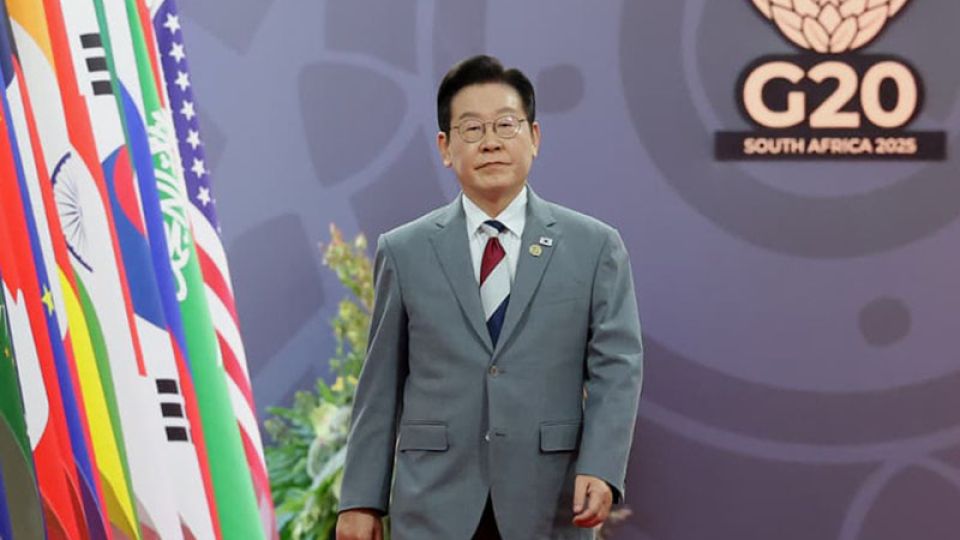November 24, 2025
SEOUL – South Korea will host the 2028 Group of 20 Summit, as its leaders’ declaration adopted on Saturday confirmed the country would assume the rotating presidency of the annual multilateral summit.
“We commit to working together under the United States’ Presidency in 2026 and meeting again in the United Kingdom in 2027 and in the Republic of Korea in 2028,” read the declaration. The Republic of Korea is South Korea’s official name.
President Lee Jae Myung will chair the international summit, which falls within his single five-year term ending in June 2030. The announcement comes less than a month after Lee presided over the Asia-Pacific Economic Cooperation meetings in Gyeongju, North Gyeongsang Province.
Lee said during Sunday’s session that he would “ensure that the G20 further consolidates its role as the premier forum for international economic cooperation.”
Hosting the G20 on the 20th anniversary of its launch “raises expectations that South Korea could play a leading role in fostering stronger cooperation of the G20 members to unravel complexities in international affairs,” Oh Hyun-joo, third deputy director of the presidential National Security Office, told reporters in a briefing in Johannesburg on Sunday.
The 2028 summit will mark South Korea’s second time leading a G20 gathering, following hosting the fifth summit in November 2010. The G20 held its inaugural meeting in Washington in 2008 and convened twice a year in 2009 and 2010 before shifting to an annual format starting in 2011.
When G20 leaders last gathered in Korea in 2010, they outlined a broad agenda for global policy coordination, including achieving fiscal sustainability, curbing excessive exchange-rate volatility and creating jobs through structural reforms.
Leaders also pledged to support global rebalancing by helping low-income countries build the capacity to address their own development challenges. These commitments were reflected in the Seoul Action Plan and the Seoul Development Consensus for Shared Growth.


